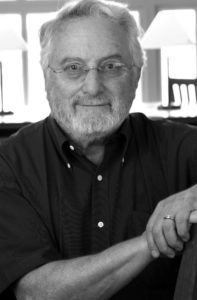 For more than five decades, Joel Handler’s remarkable influence, range, and productivity have made him one of the world’s leading scholars of social welfare policy and administration, government bureaucracy, law and social change, and sociolegal theory. The excellence of his research has been recognized through such honors as his election to the American Academy of Arts and Sciences and the Law and Society Association’s Harry J. Kalven, Jr. Prize.
For more than five decades, Joel Handler’s remarkable influence, range, and productivity have made him one of the world’s leading scholars of social welfare policy and administration, government bureaucracy, law and social change, and sociolegal theory. The excellence of his research has been recognized through such honors as his election to the American Academy of Arts and Sciences and the Law and Society Association’s Harry J. Kalven, Jr. Prize.
Professor Handler has authored seventeen monographs. Among the best known are The “Deserving Poor”: A Study in Welfare Administration (with Ellen Jane Hollingsworth) (1971), Social Movements and the Legal System: A Theory of Law Reform and Social Change (1978), The Conditions of Discretion: Autonomy, Community, Bureaucracy (1986), The Moral Construction of Poverty: Welfare Reform in America (with Yeheskel Hasenfeld) (1991), and Social Citizenship and Workfare in the United States and Western Europe: The Paradox of Inclusion (2004).
Professor Handler also has been a leader in service to academic and wider communities. His provocative 1993 presidential address to the Law and Society Association, “Postmodernism, Protest, and the New Social Movements,” remains essential reading. At UCLA, Professor Handler helped organize what is now the School of Public Affairs and directed the law school’s LL.M. program. He has participated in numerous blue-ribbon commissions and received the ACLU Foundation of Southern California’s Distinguished Professors Award for Civil Liberties Education.
Before coming to UCLA in 1985, Professor Handler had spent more than twenty years at the University of Wisconsin, where he was the George A. Wiley and Vilas Research Professor of Law and an important figure in the Institute for Poverty Research.
On the occasion of Professor Handler’s retirement, UCLA School of Law on March 11, 2011, hosted Poverty and the Bureaucratic State: A Symposium in Honor of Joel Handler. Seventeen distinguished scholars, ranging from Professor Handler’s generation of law and society pioneers to those still early in their careers, gathered to comment on and discuss with the audience Professor Handler’s many contributions and the ongoing vitality of the research traditions he has influenced. Two of those presentations form the basis for the essays published in this issue.
